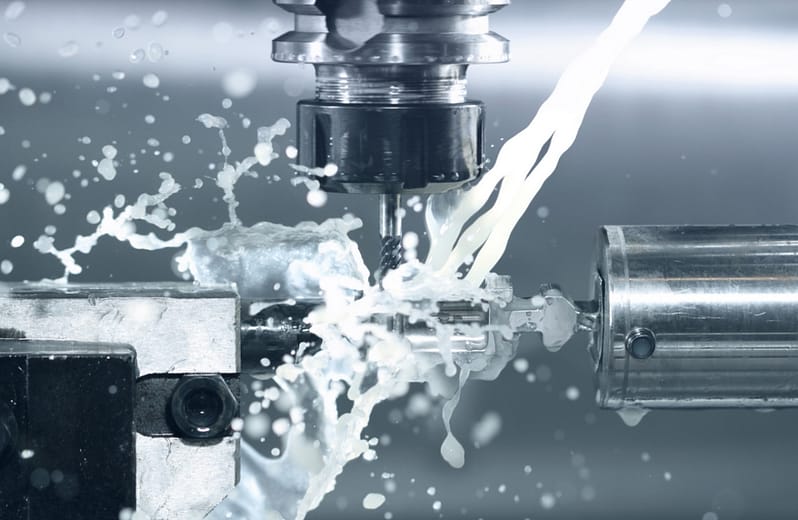There are close to 600 plastic injection molders in the United States alone. Choosing your ideal partner can be tricky and time consuming. Here are 10 questions to get you started:
How much experience do they have in your industry?
The amount of time that they have been working as an injection molding manufacturer is important, but equally as important is if they are experienced in serving your industry. An injection molder with experience in your market could help you to design, develop, and improve your product with industry-specific insights. Not only should the manufacturer be versed in your industry, having a diverse portfolio of clients from a wide-range of markets is a great sign of a dynamic team.
Are they equipped to produce your device?
Each injection molding manufacturer is outfitted with different equipment that allows them to deliver differing services to their customers. For example, one important question regarding equipment is if the manufacturer’s presses are capable of producing the size part that you need. Larger presses are able to produce larger items, and smaller presses produce smaller items. Make sure you determine if the manufacturer is equipped to meet the requirements of producing your part before moving too far along in the manufacturing process.
Do they offer prototyping?
In the interest of avoiding a regrettable and costly mistake during production, it is important to get the design of your unit right. Using prototyping techniques such as 3D-Printing, clients can hold the product in their hands before toolmaking even begins. This is a great way to determine if any adjustments need to be made in the design before moving on to tooling.
Do they offer in-house tooling?
Tooling is arguably the most important part of the injection molding process. It’s also the most expensive and time-consuming. This process can be less costly and take less time if your manufacturer utilizes in-house tooling, as opposed to outsourcing this process. Aside from the initial benefits of in-house tooling, this offering boasts other perks such as maintenance options and higher-quality tools.
Do they have a Cleanroom?
Cleanrooms are climate-controlled areas that are built to reduce the amount of dust entering the space, among other things. Depending on the class of cleanroom, personnel are required to wear garb that covers their body in an effort to reduce the amount of particulates entering the room. Cleanrooms are held to high standards because they are used for the production and assembly of sensitive devices, such as those to be used in the medical field. If you need a cleanroom in order to complete your production, also consider how much space they have available to determine if they could handle your demand.
What are their customer service ideals?
You don’t want to find out too late that your partner is a terrible communicator, or that they do not value great customer service. Trust is necessary in any partnership, and especially so in one as important as manufacturing. You can somewhat gauge how the supplier will treat you down the road by evaluating how long it takes for you to hear back from them during initial conversations. If it’s taking a week or two to receive responses during the fact-finding portion of your partnership, then it might be a sign of things to come. The manufacturer should probably also mention, unprompted, that great customer service is one of their priorities.
Are they competitively priced?
The highest-quality product won’t matter if your manufacturing isn’t at a price point that allows you to remain competitive. Ask potential suppliers what their record is for delivering products within a scheduled time-frame. Also, ask what processes they have in place that are meant to save you money; whether that be with product design, value adds, or something else.
Will you have access to a product development or design support team?
In the early stages of development, there is a fair amount of design tweaks and fine-tuning. Choose a manufacturer that offers design support to help add value to your device, or address potential issues that you did not previously recognize. A manufacturer should not only have a team of this kind available to you, but the group should also work well together, be experienced, and highly-talented. After all, the design of your project will only be as good as the team that worked on it.
Do they produce high-quality products?
Determine if you are working with a reputable company by exploring online and asking questions. Try checking out their website, searching for them on the web, reading reviews, and requesting customer testimonials. Another way to determine a quality manufacturer is inquiring about their recent investments in new technologies and equipment. If they show a trend of regular updates and continuous improvements, you can feel more assured that you are dealing with an innovative company that aims to produce quality products.
Are they certified ?
ISO certifications verify that a company is meeting certain regulatory or statutory requirements while also meeting the needs of customers and stakeholders. Check and make sure that your manufacturer is ISO certified, and what other certifications they might hold. This may include FDA registration or Clean Room certified. Even if your project does not require these distinctions, for comparison’s sake, it is good to see which suppliers are capable of meeting strict standards. The manufacturers that have earned these certifications are operating within the highest standards in the industry.



